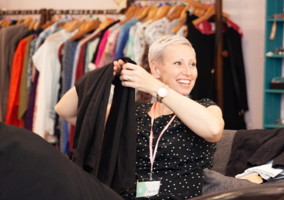Religion is often blamed for dividing people and causing conflicts. The mass media often perpetuates it as the reason behind clashes and disputes. However, as the CEO of the largest western Muslim NGO, I recognise the importance of faith and how it has contributed to our societies.
What is often overlooked is the crucial role that religion plays in resolving crises and tensions in different contexts where it contributes hugely to peacebuilding and creating harmony in secular and religious societies.
Bringing together people from different faiths and creating channels of communications between them is essential to building social harmony, this can be achieved through interfaith projects.
Over the years, we have launched a number programmes focused on bringing different faith communities together and building bridges of understanding between them helping them focus on what they have in common rather than what set them apart.
Bridge Builders
One recent programme was a model called Bridge Builders. The model works with faith leaders from different communities in international humanitarian response and encourages them to work closely with aid agencies to benefit from their in-depth understanding of their communities and the challenges on the ground.
Through the programme faith communities are equipped with the necessary skills to make their responses more effective as they are the ones who provide support during any crisis that arise, and before the arrival of international aid agencies.
Aid organisations can reach more people and make a greater impact when they work closely with faith leaders and the communities they lead.
Another purpose of this model is to ease the tension between faith communities by arranging discussions on different religious scripture and focusing on similarities between Islam and Christianity.
Channels of Hope
Another area in which faith was utilised to make a change is child safeguarding and welfare.
We have developed a child protection model which has been adopted by various faith communities around the world called Channels of Hope. The programme provides training to Christian and Muslim faith leaders on child protection and covers topics such as harmful practices, physical abuse, child marriage and child labour, positive parenting and discipline, and the effects of child abuse, neglect, and exploitation. The programme focuses on the role of faith leaders and faith messages in bringing about change in communities, and it also encourages faith leaders to take action against these practices.
Faith actors play a significant role as well in tackling xenophobia which is a massive problem at the moment because of the growing number of refugees around the world due to wars, poverty and climate change.
Importance of faith in tackling the outbreak of pandemics
Faith leaders play a critical role in their communities; they are thought leaders and opinions formers.
The Ebola crisis was an important lesson for all international faith organisations. At the early stages of the outbreak, faith leaders refused to cooperate with governments or to follow health guidelines. The virus was considered a punishment from God, and faith communities did not seek medical help. There are also many stories of early attempts by faith leaders seeking to heal those with Ebola by laying hands on those infected and spreading the virus to their congregations as a consequence. The situation soon spiralled out of control, which resulted in a major outbreak in the entire West Africa region and led to thousands of deaths. It was not until faith leaders from different communities were mobilised and played a role in the response that governments were able to control the situation and contain the spread of the virus. The messages they were spreading led to major behavioural change; people started seeking medical help when they got ill rather than praying and performing religious rituals.
This experience had a significant impact on the way we responded to the current coronavirus pandemic. We knew that it was crucial to work closely with faith leaders to get our messages across, hence why we have launched Guidance on Safe Religious Practice During the Pandemic, in partnership with the British Board of Scholars and Imams.
The guidelines included information such as: religious justifications for mosque closures during times of crisis; the religious obligation to self-isolate if one exhibits symptoms or is at risk; and the safe adaptations to traditional Islamic burial practices that would better protect frontline workers. It also offered spiritual counsel and consultation to the loved ones of those who pass away from Covid-19. People responded more positively as the message was conveyed by faith leaders.
Islamic Relief has contributed to The Global Compact on Refugees, which is a framework for a more predictable and equitable responsibility-sharing approach to address xenophobia. It provides a blueprint for governments, international organisations, and other stakeholders to ensure that host communities get the support they need and that refugees can lead productive lives.
Regardless of faith, there is far more that brings us together in humanity, than divides us. We are working towards a common goal enshrined in many faiths – communities around the world living in peace, justice and security from hunger and poverty.
Through working with other faiths we can learn from colleagues, share best practice and build strong lasting coalitions which leave a lasting impact wherever we work in the world.
Naser Haghamed is chief executive of Islamic Relief Worldwide
Faith Charities Week is live! Watch the sessions, view the agenda and register for the event here.
Related articles












